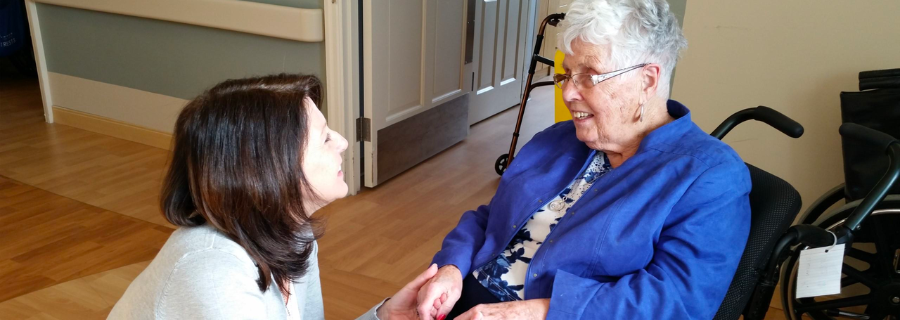Ask ten people what dementia is and most will tell you it’s “the same as Alzheimer’s Disease” or it’s “memory problems.”
However, dementia is not a diagnosis. Dementia is caused by damage to or changes in the brain. The most common source of this damage is Alzheimer’s disease, but there are over 100 causes and forms.
Dementia is a term used for a collection of symptoms that affect someone’s cognition, such as the ability to understand, communicate, plan, reason, learn, or remember. Speak to your doctor first about these symptoms, as they may be a result of a treatable condition. If symptoms worsen over time, to a point where it interferes with your ability to function independently day-to-day and there is no other medical explanation, it may be dementia. Its progression can start subtly. But it is progressive and, in later states, having dementia requires being fully dependent on others day-to-day. Dementia is not a normal part of aging (although age is the single biggest risk factor) and, sadly, it is always fatal.
When we understand that dementia is caused by damage to the brain, and not a normal part of aging, we can ensure that our loved one is given the proper diagnosis and medical treatment. We can start the journey with awareness, education, and skills, and we can seek to understand how those living with brain changes see the world. Then, we can adapt our expectations and support to help them continue to live well as changes occur.
Understanding what dementia is can also help us to be more patient and sensitive to others. We may feel impatience when someone has difficulty using the debit machine at a checkout, or when someone can’t seem to understand why a certain item is not in stock. But behaviours like this tell us that there is something else going on. As a caring member of society, we must practice being patient and kind. We can do this by not rushing them, being calm, and by offering simple step-by-step instructions. Helping others who are living with brain changes live well in their community is a social responsibility, and all it takes is awareness, patience, and kindness to support them.
Consider when someone has been diagnosed with cancer, heart disease, or other serious and potentially life-limiting conditions. In these cases, we may be more likely to understand their needs, and we would not ask more of them than they can give. However, for someone who is living with dementia, we may try to get them to see our way, or we may not understand why they can’t remember the doctor’s appointment that we have been reminding them of daily. We may also try to use reasoning to convey why they can no longer drive or live independently, but this approach will likely not work. To the person experiencing dementia, their reality often does not match ours, due to specific areas of the brain being damaged.
Communicating with someone who is experiencing brain changes takes more than kindness, but it’s a great start. It begins with each of us having awareness, knowledge, and building our skill to understand that those living with dementia are doing the very best they can. We all have the need to be accepted and cared for exactly as we are. Those living with dementia are no different.
Yvette Gagnon is a Positive Approach to Care Consultant, Trainer, and a Certified Dementia Care Practitioner. She owns Comforting Companions, a service dedicated to the social and emotional wellbeing of others by providing dementia education/consulting and companion care.
Learn more at:
< Back to Articles | Topics: Trends

